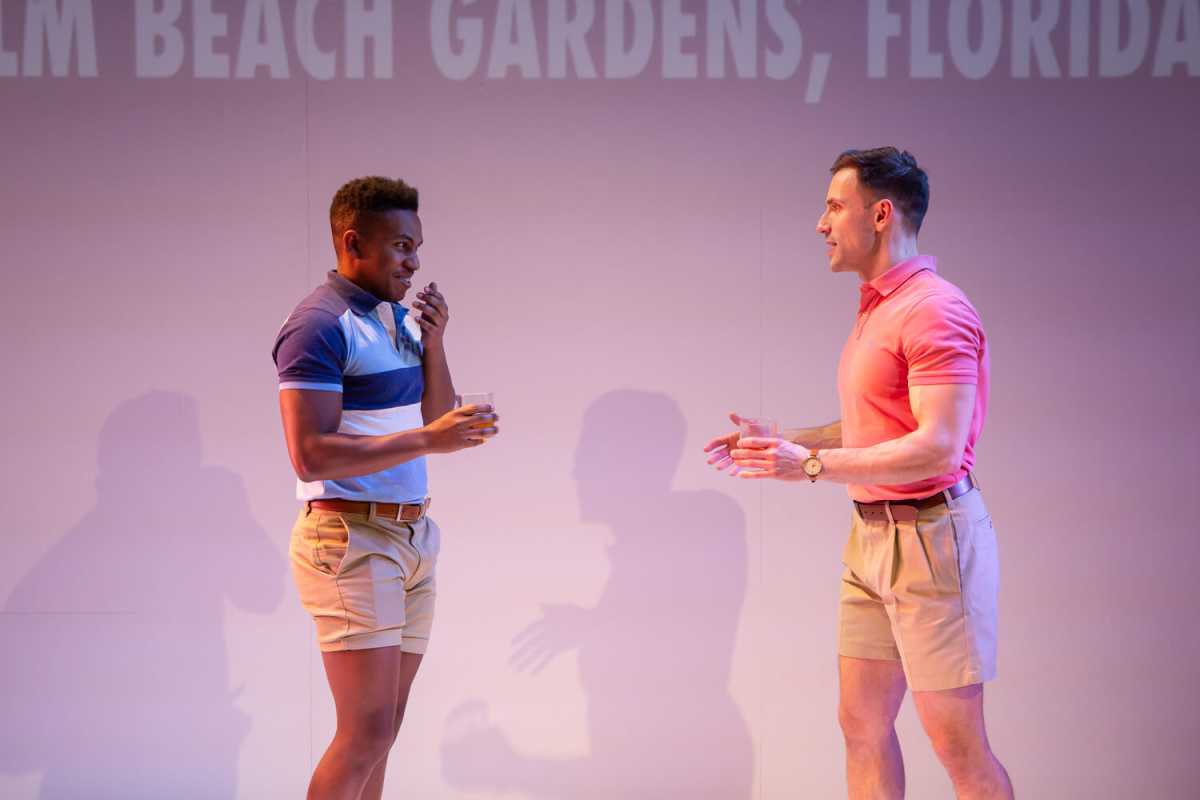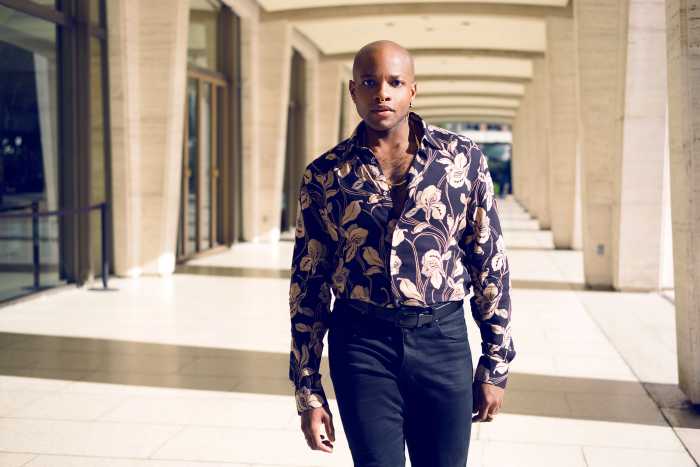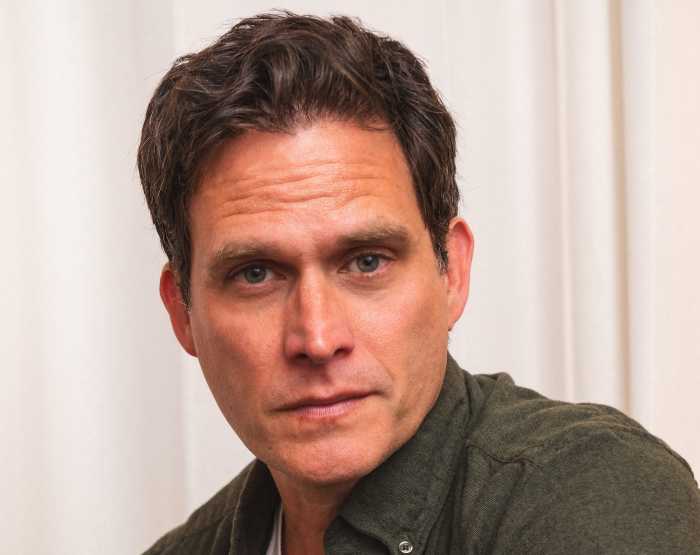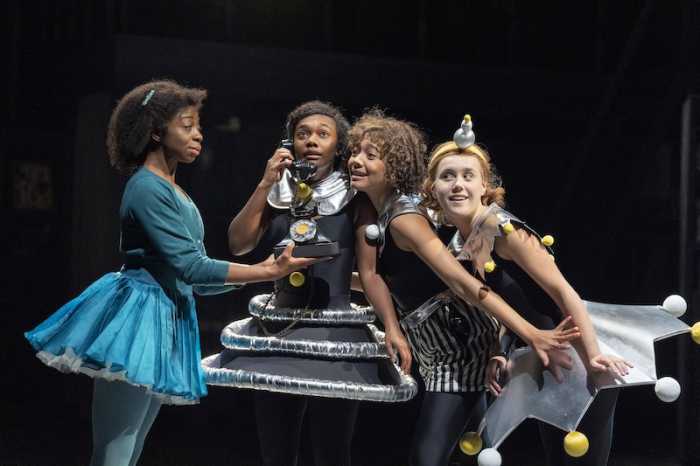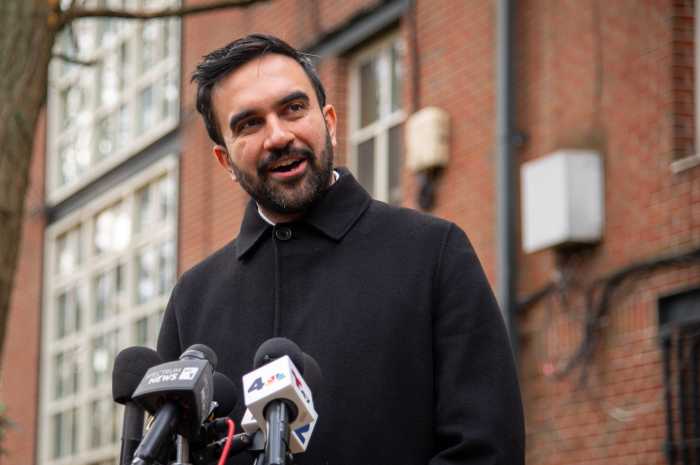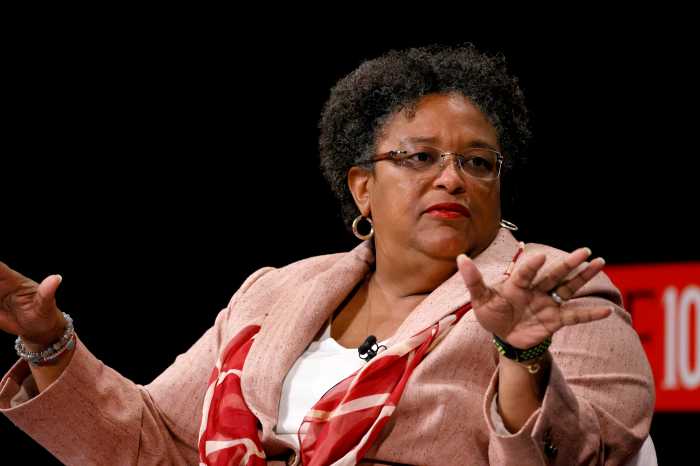The late playwright Terrence McNally hated being called a “gay playwright” almost as much as he hated the term “gay plays.” It’s a valid point: Why, he asked, shouldn’t there simply be plays and playwrights? Notwithstanding, there is a specific sub-genre of plays from the mid-20th century forward that deal specifically with the gay male experience in the culture. Some of these have been cultural masterpieces — “The Boys in the Band,” “The Normal Heart,” and recently “The Inheritance.” Others have been in the vein of “cute boys in their underpants,” which have been titillating but almost instantly forgettable. Off- and Off-Off Broadway have been rife with the latter for years, notably “Naked Boys Singing,” which, now stripped of its more serious songs, is a destination for bachelorette parties as much as anything else. Go figure.
A substantive — and entertaining — gay play that is neither superficial nor a political screed is rare, and when one comes along, it should be celebrated… and seen. The play in this case is “Rough Trade,” now getting a simple but effective production at The Tank.
More importantly, Kev Berry is writing about Millennials and the challenges this generation — way post-Stonewall — faces. The title refers to casual tricking, often for money and often where a rich man pays for a rough partner. In this case, it’s also a metaphor commenting on the complexity and challenge of being gay in a world of hook-up apps, social media, Googling partners, and trying to survive in New York. Unlike Mart Crowley’s “Boys in the Band,” now 55 years in the past, Berry’s men do not live a ghettoized existence, but they still struggle with who they are, where they fit, or how they can love. In some respects, nothing has changed; for all their affection for one another, they can still be rotten and angry — rage that is seeking a target.
One doesn’t need to understand the history to appreciate these men, each named, metaphorically, for a bird. Bunting and Finch were tricks and are now roommates and best friends. Bunting is an aspiring artist, as is Finch. Both work day jobs to pay the rent. Bunting meets and falls for Cock, a graphic novelist/sex worker, and Finch meets Hawk, an affluent accountant who works for big pharma and later an investment bank. Finch quits his day job as Hawk begins to support him financially. Over a series of scenes, we see the relationships develop, falter, and struggle to find their ways in the challenging world. Should Finch, an artist, really be involved with Hawk, who works for companies that don’t support LGBTQ causes? Can Bunting have a loving relationship with a sex worker? What are the choices and the costs each of the characters makes? Berry seamlessly weaves in these issues, peppered with wonderful comic details. For instance, Bunting can only paint when he is listening to the overture of “Gypsy” on non-stop repeat. It’s both clever and dramatically important to a character who is emotionally lost and floundering. Even as he wants to be connected, he can’t manage it, and instead he attacks, hurling a list of people from gay history at Hawk in a drunken scene to try to invalidate him, and for what reason? It would seem to be an attempt to show how superior Bunting is to Hawk — at least in gay terms — but the tragedy is how it reveals Bunting’s impotence and separateness. It’s a fascinating device that resonates well beyond the world of the play.
The cast is uniformly outstanding. Remy Germinario as Bunting is both fierce and complex. Bunting is hard to love, and his rage is a kind of self-sabotage; it’s a courageous performance, and one can’t help but feel for Bunting’s torment. Derek Christopher Murphy as Finch, on the other hand, is open and often gentle, but he, too, struggles with who he is in this world. Did he sell out? Is it okay to love someone with a dark past? Gabriel Neumann as Cock has an easy charm, and despite his side hustle has a highly structured sense of morality and decency. Max Kantor as Hawk manages to be both sexy and goofy simultaneously as he tries to negotiate his relationship with Finch and how Finch and Bunting’s relationship affects him. It’s a terrific ensemble that plays well under Alex Tobey’s precise direction.
Berry’s play stands on the shoulders of the ones that went before, down to unrelenting bitchiness and one-upping one another with musical references and spitting vitriol at one another for not knowing more queer history. Berry has an original voice, a deft facility with natural dialogue, and an observational, yet empathetic, perspective on the four characters he’s created. Plus, the final sound cue will, for any show tune queen, draw a laugh of recognition and stand as a wry comment on the whole undertaking.
Rough Trade | The Tank 312 West 36th Street | Mon, Weds-7 7 p.m.; Sun 3 p.m. | $27.84-$105.97 (including fees) | Ovationtix.com

